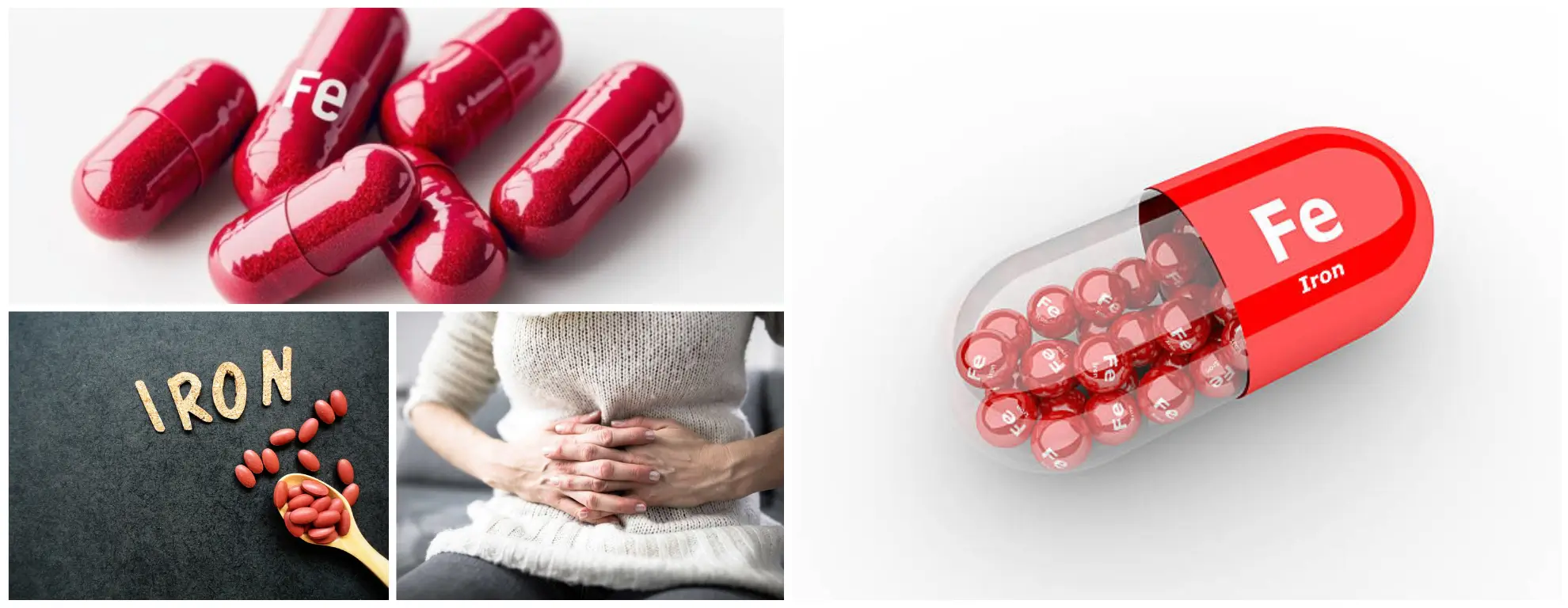Iron supplements are among the most commonly used nutritional aids worldwide—especially for treating iron deficiency anemia. But along with their well-known benefits, there’s a frequently asked question: Do iron supplements cause constipation?
If you’ve ever felt bloated or irregular while taking iron, you’re not alone. Constipation is one of the most reported side effects, often leading people to reduce their dosage or stop supplementation altogether. But before you give up on iron, let’s explore why this happens and what you can do to minimize discomfort while still getting the benefits.

1. Can Iron Supplements Really Cause Constipation?
Yes, iron supplements can and often do cause constipation in some individuals.
According to the Mayo Clinic and the National Institutes of Health (NIH), constipation is one of the most common side effects of oral iron supplementation. The reason is simple: not all the iron you consume gets absorbed. Unabsorbed iron remains in the gut, where it can disrupt normal digestive function and slow down bowel movements.
“Gastrointestinal side effects, including constipation, nausea, and abdominal discomfort, are common with high-dose iron therapy.”
— NIH Office of Dietary Supplements
The extent of constipation can vary depending on your iron dosage, the form of iron used, and your individual digestive sensitivity. While some people may experience only mild discomfort, others might struggle with more severe symptoms if not managed properly.
2. Why Iron Supplements May Lead to Constipation
Constipation caused by iron supplements is primarily linked to how iron is absorbed in the digestive system. When you consume iron—especially in higher doses—not all of it is absorbed by the body. The unabsorbed iron remains in the gut, where it can disrupt normal intestinal motility and irritate the gastrointestinal lining, leading to slowed bowel movements.
Here are a few key reasons why this happens:
1) Iron Absorption Mechanism
Iron is mostly absorbed in the small intestine. However, only a small percentage (typically 10–20%) of oral iron is actually absorbed—especially in the case of ferrous sulfate, one of the most common and affordable forms. The remaining iron can ferment and irritate the gut lining, resulting in bloating, discomfort, and constipation.
2) Formulation Matters
Different iron supplements have varying effects on the digestive system:
| Iron Form | Constipation Risk | Notes |
|---|---|---|
| Ferrous Sulfate | High | Most commonly causes GI discomfort |
| Ferrous Gluconate | Moderate | Milder, but still has side effects |
| Iron Bisglycinate (Chelated) | Low | More gentle on the stomach |
| Liquid Iron | Lower | May be easier to digest than tablets |
| Slow-Release Iron | Variable | Gentler for some, but less absorbable for others |
3) Dosage Size
The higher the dose, the greater the likelihood of constipation. High-dose iron supplements (above 45 mg/day) are more likely to lead to digestive issues than lower-dose or divided-dose regimens. People who take 60–100 mg iron at once often experience side effects, while dividing the dose throughout the day may reduce the risk.
3. How to Reduce Constipation from Iron Supplements
If iron supplementation is giving you constipation, the good news is there are several ways to manage or even avoid this side effect—without quitting your supplement.
✅ Hydrate Well
Drink plenty of water throughout the day. Hydration keeps stool soft and helps your digestive system function smoothly.
✅ Increase Fiber Intake
Add more fiber-rich foods to your diet—like oats, leafy greens, chia seeds, and fruits. Fiber supports healthy bowel movements and offsets the constipating effects of iron.
✅ Stay Active
Light physical activity like walking or stretching encourages bowel motility and may relieve sluggish digestion.
✅ Choose Gentler Iron Forms
Ask your doctor or pharmacist about iron supplements that are less likely to cause constipation, such as:
- Iron bisglycinate (gentle and bioavailable)
- Liquid iron (easy to digest)
- Slow-release iron (sustained absorption for some people)
✅ Divide the Dose
Instead of taking one large dose per day, try splitting the total amount into two smaller doses—for example, 30 mg twice daily instead of 60 mg once. This often improves tolerance.
✅ Consider Iron with Vitamin C
Taking iron with Vitamin C (like ascorbic acid or orange juice) may enhance absorption, allowing for a lower dose to be equally effective—thus reducing the need for high-dosage pills that may irritate your gut.
💡 Tip: Always speak with a healthcare provider before switching iron types or adjusting your dosage.
4. When and How to Take Iron Supplements for Better Tolerance
Timing and method of taking iron supplements can greatly affect how your body tolerates them. Here are science-backed tips to improve both absorption and comfort:
Take on an empty stomach: Iron is best absorbed when taken 1–2 hours before meals. However, if you experience stomach upset, it’s acceptable to take it with a small amount of food.
Avoid iron-blocking foods: Certain foods and drinks can interfere with iron absorption. These include: Calcium-rich foods and dairy products, Coffee and tea (especially black tea), High-fiber cereals or grains (they may contain phytates)
Pair with vitamin C: Taking iron supplements with a source of vitamin C (like a glass of orange juice or a vitamin C tablet) can enhance absorption significantly.
Don’t mix with calcium supplements: Calcium competes with iron for absorption. Space them out by at least 2 hours.
Pro tip: If you take other medications or supplements, talk to your healthcare provider about the best timing, as iron can also interfere with antibiotics, thyroid medication, and others.
5. Other Common Side Effects of Iron Supplements
While constipation is the most widely reported side effect, iron supplements may cause other mild to moderate gastrointestinal reactions, especially when taken at high doses or on an empty stomach. Common side effects include:
Side Effect Explanation
| Side Effect | Explanation |
|---|---|
| Nausea | More common with ferrous sulfate or higher doses |
| Stomach cramps | Can occur within an hour of ingestion |
| Dark stools | Harmless side effect due to unabsorbed iron |
| Diarrhea | Less frequent; more common with liquid or fast-release forms |
| Metallic taste | A slight taste disturbance experienced by some users |
| Fatigue or malaise | Rare and usually linked to absorption issues |
💡 Important: These side effects often diminish over time as your body adjusts to the supplement. If symptoms persist or are severe, switch to a gentler form like iron bisglycinate or consult your doctor for alternatives.
Do Iron Supplements Cause Diarrhea?
While constipation is the more commonly reported issue, some people may experience diarrhea after taking iron—especially liquid iron supplements or fast-absorbing forms.
This happens because:
- Excess iron that isn’t absorbed can irritate the intestinal lining.
- Some iron formulations include additives or sweeteners that may act as laxatives.
However, this is relatively uncommon, and if diarrhea persists, it may be a sign that your supplement isn’t right for you. Switching to a different form (e.g., slow-release or chelated iron) or lowering the dose may help.
6. Benefits of Iron Supplements
Despite the occasional side effects, iron supplements offer significant health benefits, especially for individuals with iron deficiency or increased iron needs.
Key benefits include:
✅Treatment of Iron Deficiency Anemia: Iron is essential for hemoglobin production, which carries oxygen in the blood. Supplementation helps restore normal red blood cell levels.
✅Improved Energy Levels: Fatigue and weakness are common signs of low iron. Restoring iron levels often leads to better stamina and cognitive function.
✅Support During Pregnancy: Pregnant women require more iron to support fetal growth and prevent anemia. Many prenatal supplements include iron for this reason.
✅Better Immune Function: Iron contributes to immune cell development and oxygen transport, both critical for a healthy immune response.
While mild side effects like constipation are possible, the overall health benefits far outweigh the risks when iron supplements are used correctly.
Conclusion
So, do iron supplements cause constipation? Yes, they can—but it's manageable.
Constipation is one of the most common side effects of iron supplementation, especially with high doses or certain forms like ferrous sulfate. Fortunately, adjusting the dosage, switching to a gentler form (like iron bisglycinate), improving hydration, and spreading doses throughout the day can significantly reduce discomfort.


